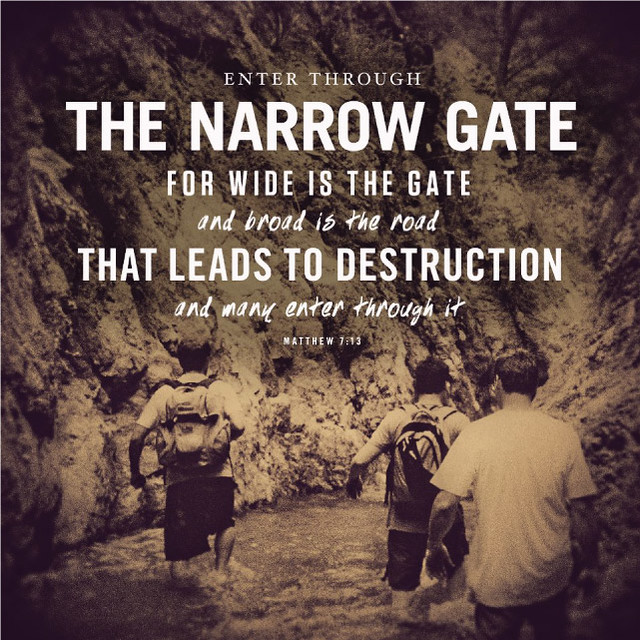Hate What The World Tells You To Love
Rev. Marcel Divine Emeka Okwara, CSsR
Homily for the Twenty-Third Sunday in Ordinary Time, Year C
St. Alphonsus Catholic Church, Brooklyn Center, MN
Sunday, September 4, 2022
Many people including Christians will find today’s Gospel (Luke 14:25-33) quite intolerable and difficult to comprehend. But as tough as this passage is, it is worth pondering over because it is about the life of discipleship. Luke says “great crowds were traveling with Jesus,” and in a dramatic fashion Jesus drops a kind of spiritual atomic bomb on them: “If anyone comes to me without hating his father and mother, his wife and children, brothers and sisters, and even his own life, he cannot be my disciple.” These people have been fascinated by the personality of the Lord. They have been intrigued by the authority of his word. The great miracles that followed him have driven them to walk along with him. They have heard his long sermons on the Mount and have accepted them. Then Jesus drops the bomb: unless you hate your father and mother, wife and children, brothers and sisters and even your own life, you cannot be my disciple. I can imagine many of them scratching their heads and wondering, isn’t he the one that spoke about love including loving one’s enemies? Isn’t he the one who said, bless those who curse you and pray for those who mistreat you? (Luke 6:28) I can imagine many uttering inaudibly: I have to hate everyone I love in order to follow you? I can imagine some in the crowd kicking and fuming and questioning: Why is he telling us to hate those who are dearest and nearest to us? I imagine many left him and went away.
Sisters and brothers, let me ask a very important question: deep down are you happy? Do you know a lot of happy people? By happy, I mean people who are deeply content and satisfied, who are right with themselves and God. One thing my pastoral ministry has taught me is that a lot of people are sadder than they appear in the public. In the public view, they smile and come across as happy. But in reality they are not. Permit me to ask another important question: do you think our understanding of happiness and what constitutes happiness is right and accurate? Is it not possible that our understanding of happiness has made us slaves of an illusion? What is the illusion? The illusion that says you will be happy when you get enough pleasure; the illusion that says you will be happy when you have power and wield lots of power; the illusion that says you will be happy when people adore and admire you a lot; the illusion that says you will be happy when you have abundant material wealth. If you think you will be happy once you get all you need or want, you are chasing an illusion.
The two tough spiritual truths are, one, everyone is a victim of this great illusion. Two, none of the aforementioned worldly goods can make us happy. Yes, when pleasure is obtained, when power is attained, when honor and wealth are acquired, we experience a rush of excitement. But sooner or later, all that excitement fades away. We become bored and restless again and find ourselves wanting more and more and more. If we don’t turn to God and surrender totally to him, our whole life becomes the terrible desire to fill up our ego with these goods of the world— money, power, fame, sex etc. If you are wondering why we are not happy, this is it! It is an illusion and a great one for that matter to believe that the acquisition and procurement of power, wealth, pleasure and esteem of others will guarantee true and lasting happiness, peace and rest of mind. What’s the secret to being happy? Right now, right before you, you have everything you need to be happy. Regardless of the state of your life or what your pain is or how many attachments you have, right now, you have everything you need to be happy. The holy grail to happiness is right in front of you at every moment.
Remember the book, MAN’S SEARCH FOR MEANING by Viktore E. Frankl. In that book Viktore shows there were happy people at Auschwitz. Auschwitz is hell on earth. It was the largest concentration camp of death located in southern Poland. Those locked up there were deprived of everything we try to fill up our life with. They were deprived of freedom, money, wealth, pleasure, power, honor, status, fame etc. Yet, Viktore Frankl says there were happy people at Auschwitz. Remember St. Edith Stein? She was a Carmelite nun. Her life ended at Auschwitz. She and her fellow nuns were dragged out of the convent and put in a train that was heading to Auschwitz. A few days after they arrived, they were killed. But some people who were in the train with them and who survived the war talked about what they saw. According to them, St. Edith Stein and her sisters were so calm, so peaceful that they were ministering to those around them. How can they be calm in the train going to Auschwitz? How can they be calm in the concentration camp of death? All the things we think make happiness possible were taken away from them, yet they had peace and serenity, even ministered to those around them and became bearers of God’s presence. How’s this possible? Listen again to the words of Jesus: “If anyone comes to me without hating his father and mother, wife and children, brothers and sisters, and even his own life, he cannot be my disciple.” In other words, hate all these things and all these people in the measure that they have become gods to you. If you are filling your ego with all these things and with all these people, you must hate them. Hate the very things that the world has convinced you you need to be happy. Hate the attachments and possessions the world has convinced you you need to be happy. And when you detach from them, you will discover something miraculous. You will realize that the holy grail of happiness is right in front of you. Even in Auschwitz, even on a train taking you to Auschwitz, you can find peace. Original sin has darkened our mind and fuddled our will. Due to it, we choose things in the wrong way. So, the spiritual bomb that Jesus drops today is meant to break us into a new consciousness. Consider Jesus crucified. Naked! Humiliated! Stripped of all that the world holds as good. Yet, he is the most blessed. Hate what the world tells you to love. Love what God tells you to do. That’s how you become truly happy.








